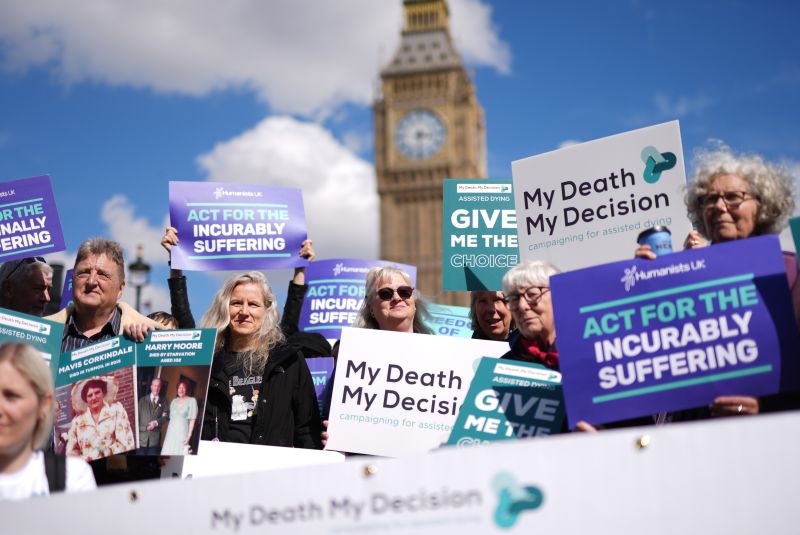In a landmark decision, Britain is set to vote on the highly contentious issue of assisted dying following an emotionally charged debate that has deeply divided lawmakers. The proposed legislation, if passed, would allow terminally ill patients to seek medical assistance to end their lives.
Supporters of the bill argue that individuals should have the right to choose a peaceful and dignified death if they are facing unbearable suffering at the end of their lives. They believe that legalizing assisted dying would provide a compassionate option for those who are in the most desperate situations.
On the other hand, opponents of the bill, including many religious and disability rights groups, argue that legalizing assisted dying could open the door to abuse and coercion. They fear that vulnerable individuals, such as the elderly or disabled, could feel pressured to end their lives prematurely.
The debate has sparked passionate arguments on both sides, with lawmakers wrestling with complex ethical and moral questions. Many have shared personal stories and experiences that have shaped their views on the issue, leading to intense and heartfelt discussions in parliament.
As the vote approaches, the decision weighs heavily on the shoulders of lawmakers who must consider the far-reaching implications of their choice. The outcome of this vote will not only have a profound impact on the lives of terminally ill patients and their families but will also shape the moral and ethical landscape of the country for years to come.


